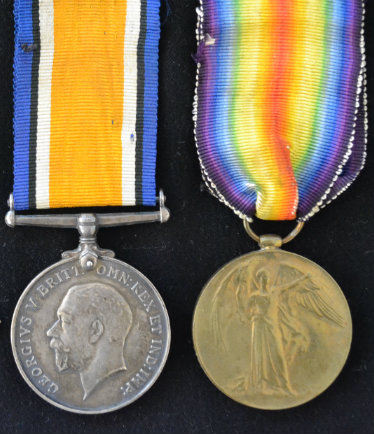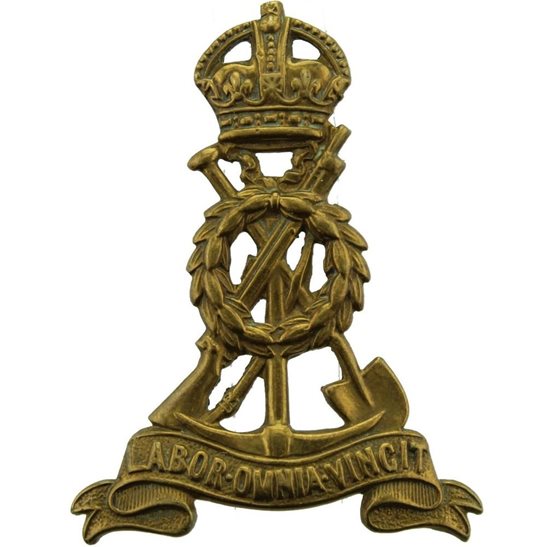Personal Details
Born: 18 May 1900
Family: Fifth of eight children born to Edward and Elizabeth Cartwright. He married Minnie Dulson in 1923 in Whitchurch, Shropshire. Together they had two daughters, Doris and Eveleen.
Residence: At the time of his birth the family were living in Whitewell Lane, Iscoyd, Flintshire, Wales. In 1911 their address was Drury Lane, Tybroughton, Whitchurch, Shropshire. Twenty eight years later he was living with his wife and two daughters in Tarvin, Cheshire.
Employment: In 1939 he was working as a horseman on a farm
Died: Not known
Military Details
Regiment: Labour Corps (previously The King’s (Liverpool Regiment))
Rank: Private
Service Number: 47465 (previously 43776)
Date of Enlistment: Not known
Date of Discharge: Not known
Reason for Discharge: Not known
Frank was awarded the Campaign Medals (British War Medal, and Victory Medal).

The British War Medal (also known as 'Squeak') was a silver or bronze medal awarded to officers and men of the British and Imperial Forces who either entered a theatre of war or entered service overseas between 5th August 1914 and 11th November 1918 inclusive. This was later extended to services in Russia, Siberia and some other areas in 1919 and 1920. Approximately 6.5 million British War Medals were issued. Approximately 6.4 million of these were the silver versions of this medal. Around 110,000 of a bronze version were issued mainly to Chinese, Maltese and Indian Labour Corps. The front (obv or obverse) of the medal depicts the head of George V. The recipient's service number, rank, name and unit was impressed on the rim.
The Allied Victory Medal (also known as 'Wilfred') was issued by each of the allies. It was decided that each of the allies should each issue their own bronze victory medal with a similar design, similar equivalent wording and identical ribbon. The British medal was designed by W. McMillan. The front depicts a winged classical figure representing victory. Approximately 5.7 million victory medals were issued. Interestingly, eligibility for this medal was more restrictive and not everyone who received the British War Medal ('Squeak') also received the Victory Medal ('Wilfred'). However, in general, all recipients of 'Wilfred' also received 'Squeak' and all recipients of The 1914 Star or The 1914/1915 Star (also known as 'Pip') also received both 'Squeak' and 'Wilfred'. The recipient's service number, rank, name and unit was impressed on the rim.

